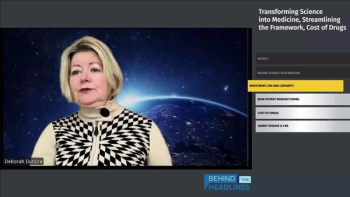On June 26, 2025, FDA announced the elimination of Risk Evaluation and Mitigation Strategies (REMS) for seven approved B-cell maturation antigen (BCMA)- and CD19-directed autologous chimeric antigen receptor (CAR)-T cell therapies (1). The agency determined that REMS is no longer required to ensure that the benefits of these therapies outweigh their risks, marking a significant regulatory milestone that reflects growing clinical expertise and safety data in the field.
Since the approval of Novartis’ Kymriah in 2017, six additional autologous CAR-T therapies have entered the US market: Breyanzi (Bristol Myers Squibb), Yescarta and Tecartus (Gilead/Kite), Abecma (Bristol Myers Squibb), Carvykti (Janssen/Legend), and, most recently, Aucatzyl (Autolus Therapeutics). These treatments, derived from patients’ own immune cells and genetically engineered to target malignant cells, have delivered transformative results in hematologic malignancies but initially carried substantial safety risks, particularly cytokine release syndrome (CRS) and immune effector cell-associated neurotoxicity syndrome (ICANS) (2).
Key Takeaways
·FDA REMS removal for CAR-T signals regulatory confidence, reducing compliance burdens and enabling broader cell therapy manufacturing scalability.
·Streamlined CAR-T guidelines support decentralization, expanding demand for localized production, logistics, and distribution capabilities.
·Regulatory shift reinforces value of long-term safety data, informing future CAR-T development and accelerating time-to-market for new therapies.
The original REMS included stringent requirements, such as hospital certification and immediate availability of tocilizumab for CRS treatment. With increasing clinician familiarity and standardized management protocols, along with stable rates of adverse events, FDA now considers these safeguards redundant (1). Revised product labeling still advises close monitoring but allows more flexibility—reducing the patient observation period near treatment centers from one month to two weeks and shortening driving restrictions to the same duration (1).
Operational impacts
FDA's action will have wide-reaching implications for the biopharma industry. Removing the REMS program may help decentralize CAR-T administration, creating demand for greater production scalability, supply chain flexibility, and localized product distribution strategies.
Bristol Myers Squibb, manufacturer of Abecma and Breyanzi, welcomed the decision. In a statement shared with media on June 27, 2025, the company noted that "only two in 10 eligible patients receive these potentially transformative therapies due to the confluence of complex logistical and geographic barriers affecting patients and providers" and added that the regulatory changes could help expand CAR-T use beyond major academic centers to community health settings (3).
The Alliance for Regenerative Medicine stated in a LinkedIn post that the removal of the REMS "should lower the logistical hurdles patients face in receiving CAR-T treatment as well as the cost of administration" (4). Analyst Daina Graybosch of Leerink Partners commented in a client note that the company believes “the reduction in CAR-T burden for patients and caregivers, enabled by FDA’s new monitoring and driving requirements, will drive expansion of the US cell therapy market” (5).
Considerations for early-stage developers
While the REMS elimination pertains only to autologous BCMA- and CD19-targeting therapies, early-stage developers may view this as a positive signal. FDA’s stance suggests confidence in the ability of current medical infrastructure and clinical protocols to safely manage CAR-T toxicities without supplemental regulatory oversight.
Additionally, it demonstrates the value of robust long-term safety monitoring and standardized adverse event management in paving the way for reduced regulatory burdens. However, post-marketing obligations remain, including long-term follow-up studies of 15 years for secondary malignancy risk—critical considerations for product planning and lifecycle management (1).
FDA's decision also aligns with its initial approval of Autolus Therapeutics’ Aucatzyl, a CD19 CAR-T for lymphoma, which was granted without a REMS. This precedent may foreshadow the agency’s approach to future cell therapy approvals.
*Check out Episode 19 of Behind the Headlines on our sister site, PharmTech.com, during which three experts from across the advanced therapy ecosystem examine this very topic, among others.
References
FDA. FDA Eliminates Risk Evaluation and Mitigation Strategies (REMS) for Autologous Chimeric Antigen Receptor (CAR) T cell Immunotherapies. FDA.gov, June 26, 2025.
Paliarulo N. FDA Take Major Step to Ease Access to CAR-T Therapy. BiopharmaDive.com, June 27, 2025.
Bristol Myers Squibb. U.S. Food and Drug Administration Approves Streamlined Patient Monitoring Requirements and Removal of REMS Programs within Bristol Myers Squibb’s Cell Therapy Labels. Press Release. June 26, 2025.
Alliance for Regenerative Medicine. LinkedIn post on REMS changes. June 27, 2025.
Vinluan, F. FDA Just Made Some Key Regulatory Changes to Make Cancer Cell Therapies More Accessible. MedCityNews.com, June 27, 2025.





